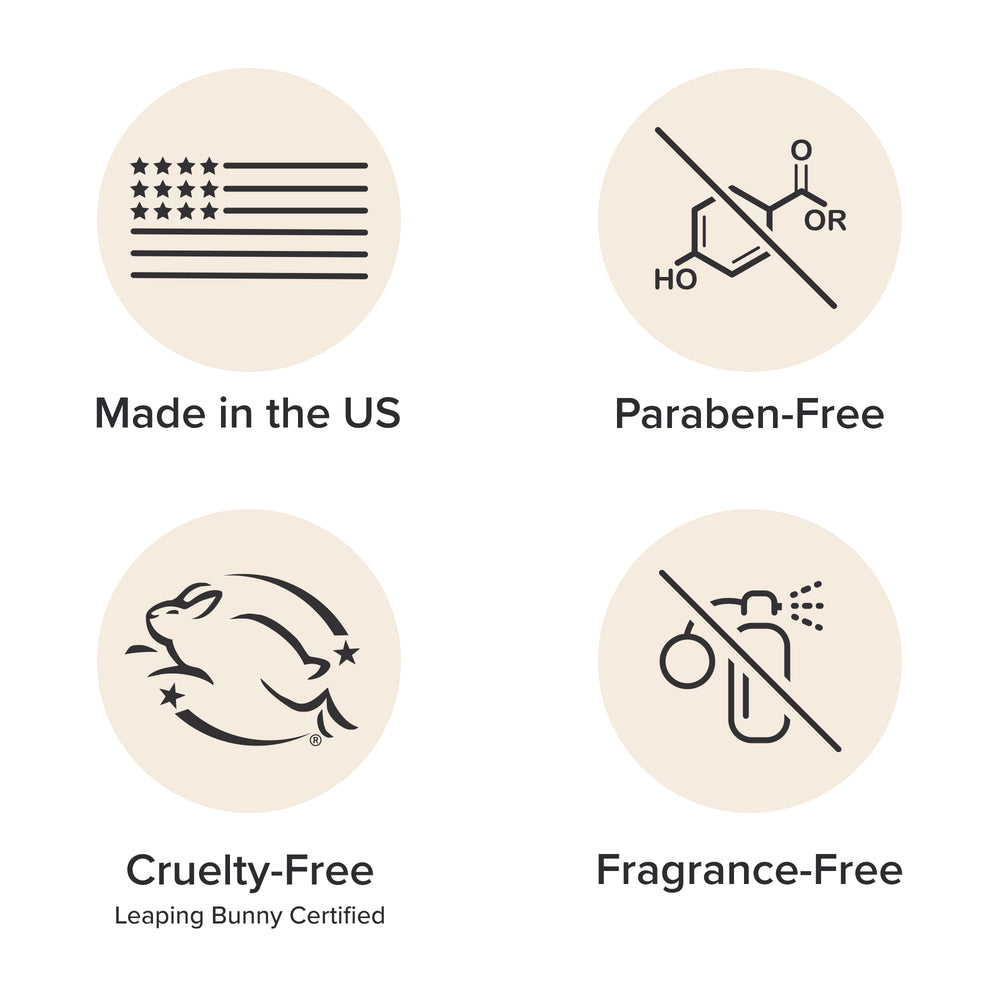Vitamin C for Skin
When it comes to skincare, some ingredients truly stand out for their exceptional benefits, and Vitamin C is undoubtedly one of those. Renowned for its powerful antioxidant properties, Vitamin C for skin offers a comprehensive defense against the daily damage your skin endures. From pollution to environmental aggressors and even harmful sun exposure, Paula’s Choice Vitamin C products provide essential protection to keep your skin looking youthful, bright, and vibrant.
In this comprehensive guide, we’ll dive deep into the many benefits of Vitamin C, how to use it effectively in your skincare routine, and answer some common FAQs about Vitamin C for face and Paula’s Choice Vitamin C products.
What is Vitamin C and Why is it Important for Your Skin?
Vitamin C, also known as ascorbic acid, is a water-soluble vitamin that plays a crucial role in maintaining the health of your skin. It is a powerful antioxidant, meaning it helps neutralize free radicals that can damage skin cells and accelerate the aging process. As a natural substance, Vitamin C is found in many fruits and vegetables, but it is often used in skincare for its various benefits, including brightening, anti-aging, and protection against environmental stressors.
Our skin is constantly exposed to harmful elements such as pollution, UV radiation, and other environmental aggressors. These factors cause oxidative stress in the skin, leading to premature aging, dullness, dark spots, and even wrinkles. Vitamin C for skin offers a solution by acting as a barrier, helping to protect the skin from the damage caused by these free radicals.
Additionally, Vitamin C is essential for the production of collagen in the skin. Collagen is a protein that gives skin its structure and elasticity, but as we age, our collagen production decreases. By stimulating collagen production, Vitamin C helps maintain the skin's firmness, elasticity, and overall youthful appearance.
Why is Vitamin C So Important for Your Skin?
Vitamin C for face is often considered one of the most beneficial skincare ingredients. Here's why:
Powerful Antioxidant Protection: As an antioxidant, Vitamin C neutralizes free radicals, preventing them from causing damage to skin cells. This protection helps to reduce the appearance of wrinkles, fine lines, and other signs of aging.
Brightening Effect: One of the most well-known benefits of Vitamin C is its ability to brighten the skin. It reduces the appearance of dullness and uneven skin tone by inhibiting melanin production. Over time, Vitamin C for skin can make the complexion appear more radiant and glowing.
Fading Hyperpigmentation: Vitamin C can help fade dark spots, sun spots, and other forms of hyperpigmentation. It inhibits the activity of tyrosinase, an enzyme involved in melanin production, which helps to lighten dark spots and even out the skin tone.
Anti-Aging: By boosting collagen production, Vitamin C helps to maintain the skin's firmness and elasticity. This reduces the appearance of fine lines and wrinkles, promoting a smoother and more youthful complexion.
Protection from UV Damage: While Vitamin C is not a substitute for sunscreen, it can help reduce the damage caused by UV rays. It supports the skin's natural defenses and works synergistically with sunscreen to provide enhanced protection against the harmful effects of sun exposure.
The Benefits of Vitamin C for Skin
There are numerous reasons to incorporate Vitamin C for skin into your daily skincare routine. Here are some of the top benefits:
1. Reduces the Appearance of Fine Lines and Wrinkles
As we age, our skin naturally loses collagen and elastin, which are essential for maintaining its firmness and elasticity. Vitamin C is essential for collagen synthesis, making it an effective anti-aging ingredient. By boosting collagen production, Vitamin C helps maintain skin structure, reducing the appearance of fine lines and wrinkles.
2. Brightens Dull Skin and Evens Skin Tone
One of the standout features of Vitamin C for face is its ability to brighten dull, uneven skin tones. By inhibiting melanin production, Vitamin C helps lighten dark spots, sun spots, and hyperpigmentation, leaving the skin looking radiant and youthful. The result is a more even and glowing complexion.
3. Fades Hyperpigmentation and Sun Damage
Vitamin C is particularly effective at reducing the appearance of hyperpigmentation, which includes dark spots, age spots, and sun damage. The powerful antioxidant properties of Vitamin C work to fade these spots, leaving the skin looking clearer and more even-toned.
4. Reduces Inflammation and Redness
Vitamin C has anti-inflammatory properties that help calm and soothe irritated skin. It can reduce redness and inflammation caused by conditions such as acne, rosacea, or other inflammatory skin issues, promoting a clearer and more even complexion.
5. Protects Against Environmental Stressors
Your skin is constantly exposed to environmental stressors such as pollution, toxins, and UV rays. These factors contribute to oxidative stress, which damages the skin and accelerates aging. Vitamin C, with its powerful antioxidant properties, helps protect the skin from these harmful factors, maintaining its health and vitality.
How to Incorporate Vitamin C into Your Skincare Routine
Adding Vitamin C for skin into your routine is simple, but there are a few things to keep in mind for maximum effectiveness. Here's how to use it properly:
Step 1: Cleanse Your Skin
Start your skincare routine by using a gentle cleanser to remove dirt, oil, and makeup. A clean canvas ensures that your skin is ready to absorb the active ingredients in your Paula’s Choice Vitamin C serum or treatment.
Step 2: Apply Toner or Exfoliant (Optional)
After cleansing, apply a toner or exfoliant to balance your skin’s pH and remove any remaining impurities. Exfoliating acids, such as alpha hydroxy acids (AHAs) or beta hydroxy acids (BHAs), can help prepare the skin by removing dead skin cells, allowing Vitamin C to penetrate more deeply.
Step 3: Apply Vitamin C Serum
Apply a few drops of Paula’s Choice Vitamin C serum to your face and neck. Gently pat the serum into the skin to ensure even absorption. The Vitamin C serum should be applied before heavier creams and moisturizers to allow its active ingredients to penetrate effectively.
Step 4: Layer Other Products
Once the Vitamin C serum has been absorbed, apply your other skincare products in order from thinnest to thickest. This typically means applying a moisturizer next, followed by any richer creams or oils.
Step 5: Use Sunscreen
During the day, always finish your skincare routine with a broad-spectrum sunscreen with an SPF of 30 or higher. Vitamin C can enhance the efficacy of sunscreen, providing extra protection against UV damage. Make sure to apply sunscreen even on cloudy days, as UV rays can still cause damage.
Paula’s Choice Vitamin C Products: Why Choose Them?
Paula’s Choice Vitamin C products are crafted with advanced formulations that ensure you get the best possible results. Whether you're dealing with pigmentation, dull skin, or fine lines, Paula’s Choice Vitamin C for face is the go-to solution for radiant, youthful skin. Here's why:
Effective Formulas: Paula’s Choice uses scientifically backed formulations that deliver potent results. The Vitamin C products are designed to maximize the benefits of Vitamin C without irritating the skin.
Gentle Yet Powerful: Even though Vitamin C is known for its effectiveness, Paula’s Choice ensures that its products are gentle on all skin types, including sensitive skin.
No Harsh Additives: Paula’s Choice products are free from harsh fragrances, dyes, and other irritating ingredients. They are suitable for a wide range of skin types and concerns.
Cruelty-Free: Paula’s Choice is committed to being cruelty-free, meaning no testing on animals is conducted in the development of their products.
FAQs
1. Can I use Vitamin C every day?
Yes, Vitamin C for skin can be used daily, both in the morning and at night. It’s recommended to use it in the morning for added protection against environmental aggressors and UV damage. However, if you're new to Vitamin C, start by using it every other day to allow your skin to adjust.
2. Is Vitamin C suitable for all skin types?
Yes, Vitamin C is suitable for all skin types, including sensitive skin. However, if you have particularly sensitive skin, you may want to start with a lower concentration of Vitamin C and gradually increase usage. Paula’s Choice offers products that are formulated to be gentle on the skin.
3. Can I use Vitamin C with other active ingredients?
Yes, Vitamin C can be safely combined with other active ingredients, including exfoliating acids (like AHAs and BHAs), retinol, and niacinamide. However, some people may experience mild irritation when combining certain active ingredients, so it’s essential to listen to your skin and adjust as needed.
4. How long does it take to see results from Vitamin C?
While some people may notice an immediate glow and improvement in skin texture, it typically takes a few weeks of consistent use to see significant changes in pigmentation, dark spots, and overall skin tone. For best results, use Vitamin C consistently over time.
5. Can I use Vitamin C at night?
Yes, you can use Vitamin C for skin at night. While Vitamin C provides added protection against UV damage during the day, it is also effective at night as an antioxidant to help repair the skin and stimulate collagen production.
Conclusion:
Incorporating Vitamin C for skin into your skincare routine can offer numerous benefits, from reducing the appearance of fine lines to brightening the complexion and protecting the skin from environmental stressors. Whether you’re looking for Paula’s Choice Vitamin C products or other high-quality formulations, the key is consistency. By following the right steps and incorporating Vitamin C into your daily regimen, you can enjoy healthier, more radiant skin for years to come.








